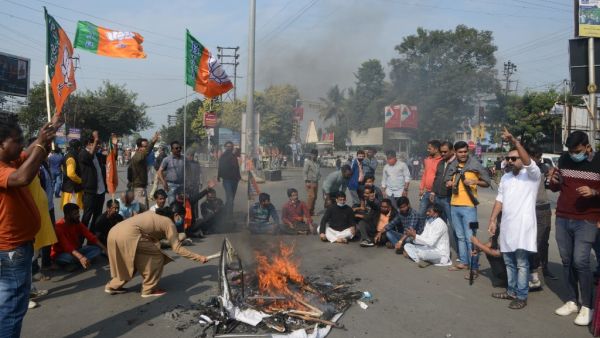Indian farmers have launched a nationwide general strike against new laws liberalizing agricultural markets, which they say go against their interests.
Farmers blocked roads and rail lines in eastern and western Indian states on Tuesday to push the government to annul the laws. They have been backed by railway workers, truck drivers, teachers, and other unions.
Tens of thousands of farmers have been camped outside New Delhi since November 27 in protest at the laws.
#PakStandsWithIndianFarmers
— Jamshaid (15 Dec Aaila's BD?) (@Jam68f) December 8, 2020
"Our mothers give birth to us, but the land gives us life".
The laws will “ruin our children’s futures,” Farmer's voice. #IndianFarmers #FarmersProtest @Aaila44 @Jam68f @SaraikyChokra @ChandiaJamil @00pti1 @hina_hp @Anila_khan_ @patriot_ujii pic.twitter.com/jchyxOoHx5
“We will not allow the government to change the rules because they want to hurt farmers’ income by filling the pockets of big companies,” said Gurwinder Singh, a 66-year-old farmer from the northern state of Punjab, which is known as the food bowl of India.
Farm organizations called for the strike after five rounds of talks between the farmers and the government failed. More talks are due on Wednesday.
“We want nothing less than a withdrawal of the new farm laws,” Balbir Singh Rajewal, a protest leader, said.
At least 20 regional and national opposition parties supported the call for the strike. The farmers’ cause also gained sympathy from the Indian diaspora.
The laws, passed in September, will allow farmers to sell their produce on the open market, including to supermarket chains, instead of government-controlled wholesale markets known as mandis, which guarantee a minimum price.
During recent days, thousands of people expressed solidarity with the farmers outside the Indian Embassy in central London.
This article has been adapted from its original source.








